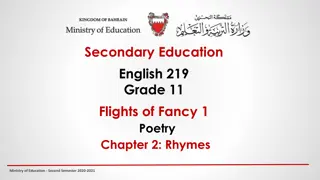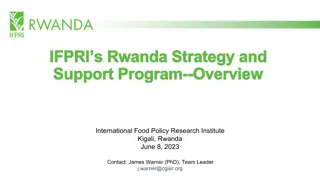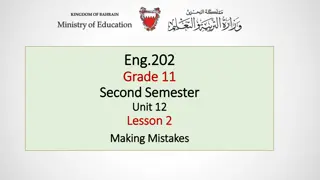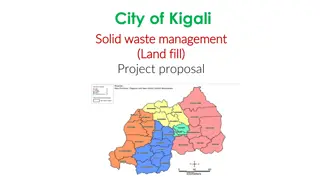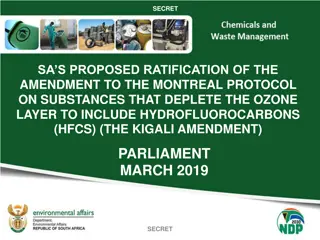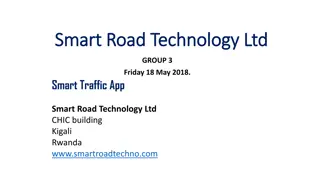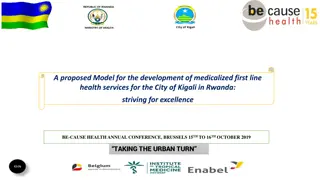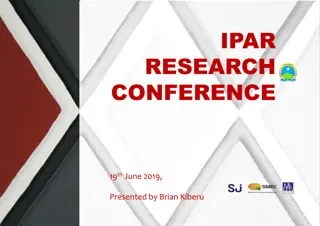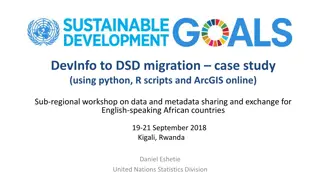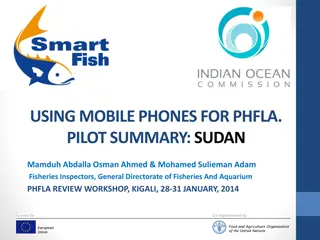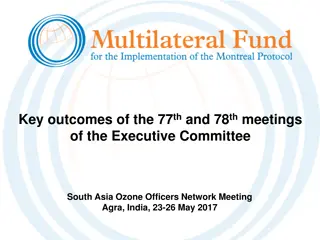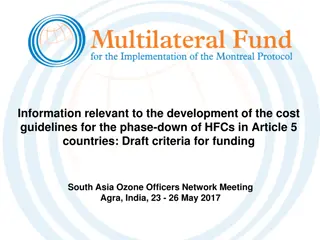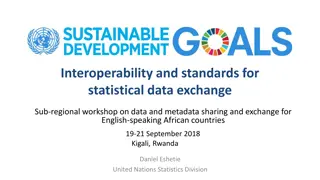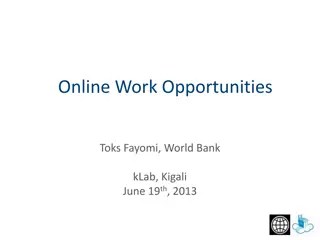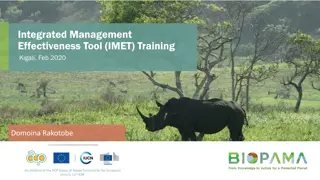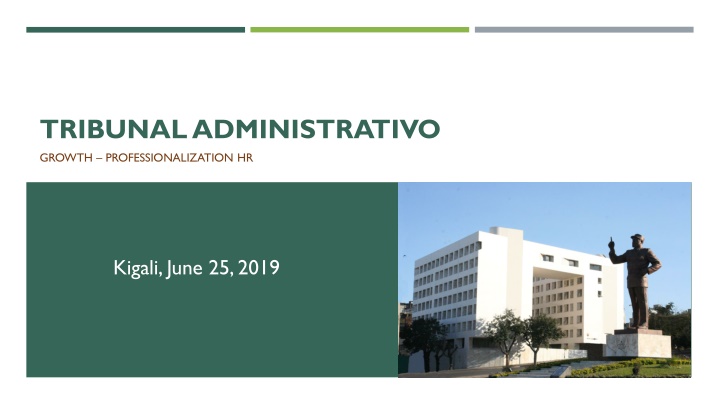
Strategic Growth and Professionalization in HR Perspective at Tribunal Administrativo
Enhance your understanding of the strategic growth and professionalization initiatives within the HR perspective at the Tribunal Administrativo, focusing on means to achieve objectives, skills development, partnerships, and more. Explore the background of Mozambique and the Tribunal Administrativo's role in the country's legal system evolution.
Download Presentation

Please find below an Image/Link to download the presentation.
The content on the website is provided AS IS for your information and personal use only. It may not be sold, licensed, or shared on other websites without obtaining consent from the author. If you encounter any issues during the download, it is possible that the publisher has removed the file from their server.
You are allowed to download the files provided on this website for personal or commercial use, subject to the condition that they are used lawfully. All files are the property of their respective owners.
The content on the website is provided AS IS for your information and personal use only. It may not be sold, licensed, or shared on other websites without obtaining consent from the author.
E N D
Presentation Transcript
TRIBUNAL ADMINISTRATIVO GROWTH PROFESSIONALIZATION HR Kigali, June 25, 2019
TOPICS CONTEXTUALIZATION; MEANS TO ACHIEVING THESE OBJECTIVES; SKILLS DEVELOPMENT; INSTRUMENTS UNDER DEVELOPMENT PROFESSIONALIZATION IN THE HR PERSPECTIVE TECHNICAL AND FINACIAL PARTNERSHIPS; DESING THE AUDITOR'S SPECIFIC CAREER; STATUTE OF THE TA'S AUDITOR; RECOGNITION AND AWARDING SYSTEM; STAFF MOTIVATION AND RETENTION POLICY; FIVE PILLARS FOR THE PROFESSIONALIZATION PROCESS.
BACKGROUND Mozambique has a population of 27.909.798, and an of 801.590 Km ; This Southern African country became independent from Portuguese colonization in June 25 1975; Its first Constitution was approved in 20 June 1975. It devolved Mozambicans their fundamental rights and freedoms and entered into force at midnight of June 25, 1975. At the time the country was the People's Republic of Mozambique; On November 2, 1990, the Peoples Assembly approved an new Constitution that entered into force on November 30 of that same year. The new Constitution introduced the Rule of Law based on inter-dependence and separation of powers; The current model of the Tribunal Administrativo is created by the 1990 Constitution taking into account the principle of separation of powers;
BACKGROUND The Tribunal Administrativo is comprised by three sections, namely Administrative Litigation, Tax and Customs Litigation and Financial Litigation; It has 18 Councilor - Judges and a Chairman - Judge. Its staff integrates support services, with 500 employees at the headquarters and a total of 1000 employees at the level of its jurisdiction. Because we are a young institution, still om its third strategic plan, its priorities include: 1. Promptly judge judicial cases; 2. Contribute for a transparent management of public goods
BACKGROUND 4. Expand the its coverage considering the emergence of new key economic sectors, with particular focus to extractives, complex public works and PPPs; 5. Attract, retain and motivate skilled people; 6. Promote a culture of pedagogical communication and user support; 7. Implement mechanisms to ensure leading by example.
MEANS USED FOR ACHIEVING THESE OBJECTIVES: Fulfillment of constitutional and legal mandate; Establishment of a strategic plan and constant monitoring of its implementation; Academic training of employees preparing them to act responsibly and constructively, inside the SAI and in society; Professional training oriented to the development of employees technical and behavioral skills; Training in Management and Leadership; Intensification and expansion of partnerships and exchanges with national and international institutions; Institutional modernization, through the improvement of physical conditions, adoption of a management model that is results-oriented and introduction of technology to support working processes Constant search for institutional independence.
SKILLS DEVELOPMENT Institutional Strategic Plan; HR Development Plan; Directory of Technical and Behavioral Skills; Training Needs identified by technical-administrative services; Training initiatives with support from development partners.
INSTRUMENTS UNDER DEVELOPMENT (LINKED TO SKILLS DEVELOPMENT) Training Strategic Plan; Professionalization of the TA auditors
PROFESSIONALIZATION IN THE HRD PERSPECTIVE Seeking technical and financial partnerships for the implementation of the professionalization processes; Designing a specific career for the TA auditors; Drafting a specific Statute for TA Auditors; Designing a Recognition and Awarding system; Designing a Staff Motivation and Retention Policy; The five pillars of the Professionalization Process.
TECHNICAL AND FINANCIAL PARTNERSHIPS The TA has been working with WB support (2009) for undertaking this activity; The TA has been working since 2013, with Irish based KOSI Corporation, which started out by undertaking a diagnosis of the conditions in place for a Long Term Institutional Capacity Building and Development Initiative; Since 2017, the TA started working with AFROSAI-E's support, first through Bruce Vivian and later on with Marianna Van Nierkek.
DESIGNING THE AUDITOR'S SPECIFIC CAREER Senior Auditor and Technical Senior Auditor a) Characteristics and promotion criteria - hybrid Senior External Control Auditor and Technical External Control Auditor a) Characteristics and promotion criteria - hybrid categories;
DESIGNING THE AUDITOR'S SPECIFIC CAREER CATEGORIES: Intern External Control Auditor; Junior External Control Auditor; Assistant External Control Auditor; Senior External Control Auditor; Assistant Supervisor External Control Auditor; Supervisor External Control Auditor; and Expert External Control Auditor.
STATUTE OF THE TA'S AUDITOR Drafting of the Statute of External Control Auditors, specifically considering: a) Entry requirements; b) Constitution of the Audit Team; c) Professional development; d) Criteria for career promotion and progression; e) Specific rights, duties and benefits; Performance assessment; f) g) Retirement.
RECOGNITION AND AWARDING SYSTEM The main objectives of this system are: 1. Improve and strengthen a culture of meritocracy; 2. Motivate, recognize, reward and foster ethical behavior of employees and agents, aimed achieving mission and vision, and promotion and respect for institutional values; 3. Improve productivity and working capacity of the SAI; 4. Turn employee into institutional partners so that they become providers of knowledge, skills, abilities and intellect.
STAFF MOTIVATION AND RETENTION POLICY Main Objectives of the Staff Motivation and Retention Policy: 1. Improve organizational environment and build an agreeable working environment; 2. Improve professional careers; 3. Assure greater engagement and productivity; 4. Assure an improvement in the institution's salary policy; 5. Grant a better decision making flow; 6. Retain the institution's intellectual capital.
MUITO OBRIGADO!!! MUITO OBRIGADO!!!

